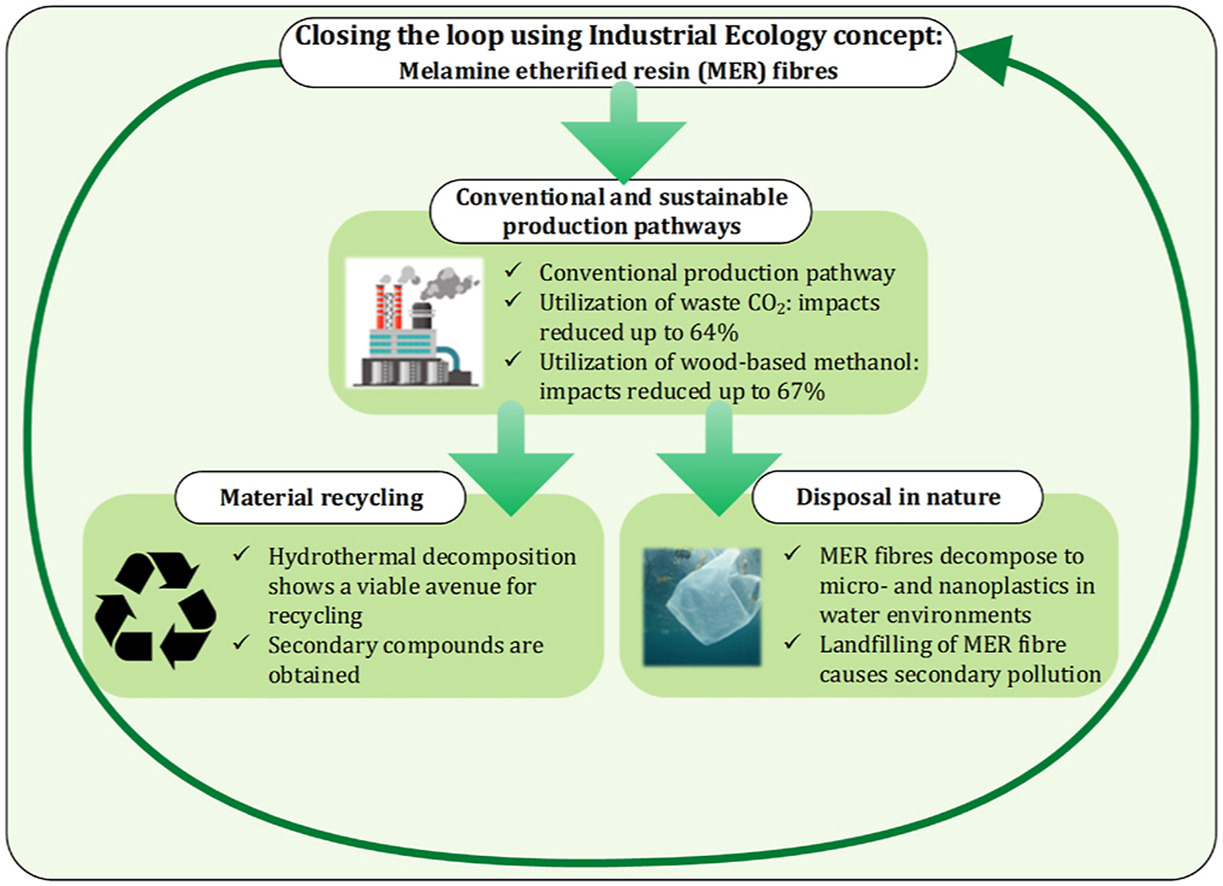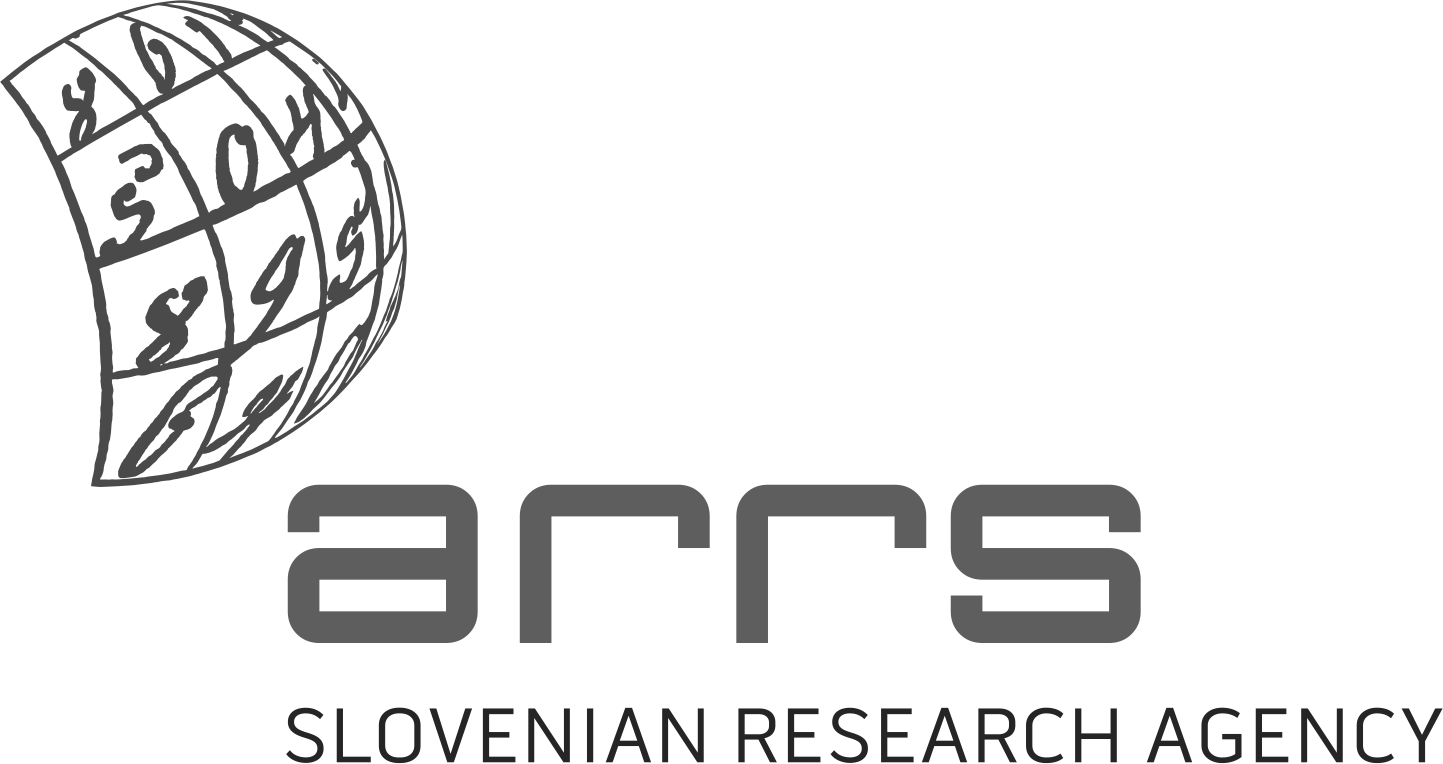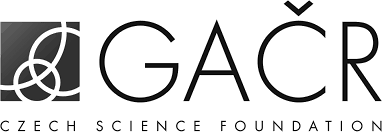Increasing global plastic consumption and its related plastic waste have become a major concern in the world. Achieving sustainable development in the plastics industry requires a systematic insight into all the relevant life cycle phases of plastic products and their environmental impacts. This paper utilises the concepts of industrial ecology and the circular economy to evaluate the three key aspects of thermoset plastic materials and their overall life cycle comprehensively: i) Sustainable production, ii) Recycling to obtain secondary products, and iii) End-of-life behaviour. For all three aspects, their environmental impacts are evaluated additionally using the conceptual Life Cycle Assessment (LCA) approach. The industrial ecology approach, together with LCA is performed on a case study of melamine etherified resin (MER) fibre, which is a high value-added thermoset plastic, difficult to recycle, and, at the end-of-life, potentially emits hazardous compounds. The potential to sustainably produce MER fibre exclusively from renewable and waste sources is explored, closing the loop on the manufacturing and disposal phases. The hydrothermal decomposition of MER fibres into valuable compounds is investigated as a recycling technology. Regarding the end-of-life, a systematic assessment is conducted of the environmental impacts of discharging such material into soil and water bodies. Cleaner production of MER fibres shows the potential to reduce greenhouse gas footprint up to 67%, while analysis of sustainable recycling and disposal highlights important environmental hotspots.



